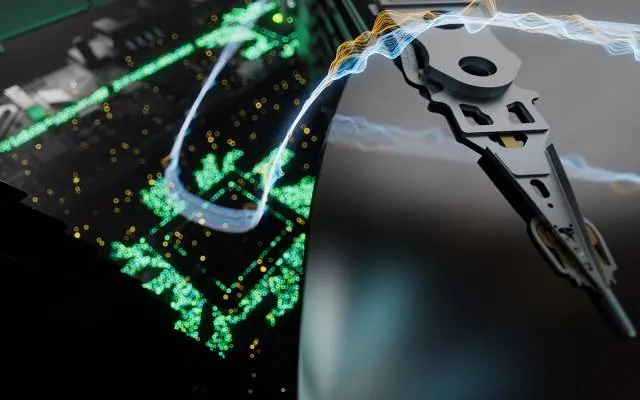
Seagate on the Verge of Revolutionizing Storage with HAMR Hard Drives!
2024-12-17
Author: Kai
Introduction
Seagate Technology, a prominent player in the data storage industry, is gearing up to make waves by finally introducing its long-awaited heat-assisted magnetic recording (HAMR) hard drives. After over two decades of research and development since 2002, the promise of a game-changing storage solution may soon become a reality, much to the excitement of technology enthusiasts and data center operators alike.
What is HAMR?
But what exactly is HAMR, and why is it significant? This groundbreaking technology operates on the principle of increasing data density by using heat. By heating a disk's magnetic materials, HAMR allows for more data to be stored in compact spaces, pushing the limits of current hard drive capabilities. Seagate clarifies that the entire process of heating, writing, and cooling happens in less than one nanosecond, a feat that incorporates sophisticated engineering, including laser diodes and specialized firmware.
Recent Developments
Recent updates suggest that Seagate has completed qualification testing with key large-volume clients, including a prominent cloud service provider—possibly comparable to giants like Amazon Web Services and Google Cloud. This could herald the arrival of HAMR drives in a broader market, with volume shipments expected shortly.
Product Capacities and Benefits
While Seagate hasn't disclosed specific pricing or a concrete timeline for customer availability, patrons can anticipate the 30TB and 32TB capacities announced for the Exos M series. These drives are designed to deliver remarkable efficiency, boasting storage densities of 3TB per platter, which is up to three times more efficient than traditional HDD models. Previous claims from Seagate indicate that these advanced HAMR drives can endure rigorous conditions, with an impressive head life exceeding seven years under demanding stress tests.
Competitive Landscape
This competitive landscape also sees Western Digital entering the fray with its own 32TB drive, leveraging energy-assisted perpendicular magnetic recording (e-PMR) technology. Both giants highlight the importance of their high-capacity drives for artificial intelligence (AI) model training—a field that demands extensive storage and unparalleled performance.
Future Prospects
Additionally, Toshiba has expressed intentions to dive into the HAMR market, further intensifying the competition among major HDD manufacturers. As technology analysts note, this development could pave the way for greater data storage innovations in the coming years.
Conclusion
As excitement builds around Seagate's HAMR technology, early adopters and businesses should stay tuned for further announcements. With the promise of high-capacity, efficient, and reliable storage, are you ready for the next evolution in hard drive technology? Stay connected for updates as this story unfolds!




 Brasil (PT)
Brasil (PT)
 Canada (EN)
Canada (EN)
 Chile (ES)
Chile (ES)
 España (ES)
España (ES)
 France (FR)
France (FR)
 Hong Kong (EN)
Hong Kong (EN)
 Italia (IT)
Italia (IT)
 日本 (JA)
日本 (JA)
 Magyarország (HU)
Magyarország (HU)
 Norge (NO)
Norge (NO)
 Polska (PL)
Polska (PL)
 Schweiz (DE)
Schweiz (DE)
 Singapore (EN)
Singapore (EN)
 Sverige (SV)
Sverige (SV)
 Suomi (FI)
Suomi (FI)
 Türkiye (TR)
Türkiye (TR)